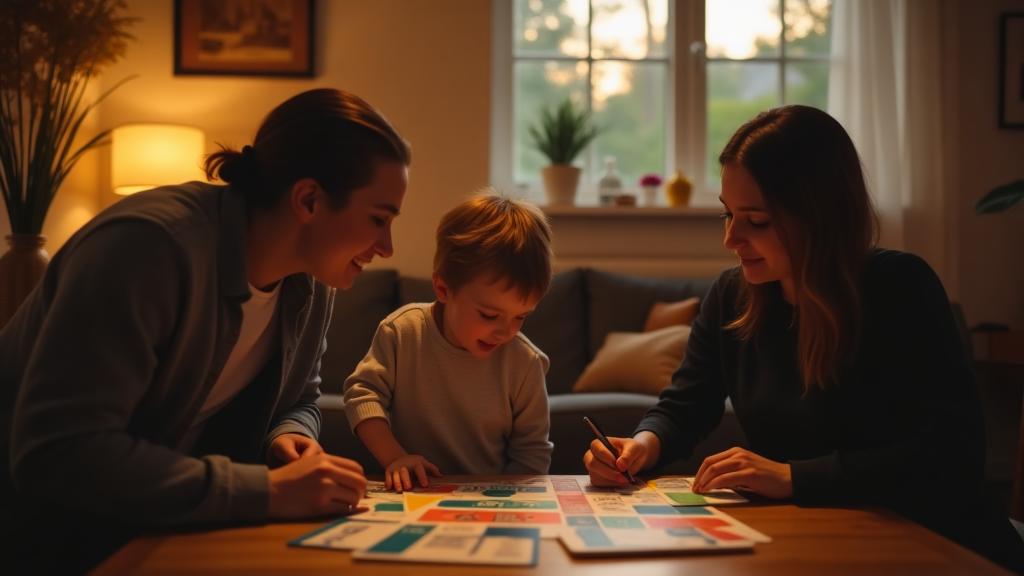
Why Reducing Screen Time Is More Than Just a Rule
These days, everywhere you look — screens. Phone in the pocket, tablet in the bag, smart TV in the hall, even watches are flashing notifications. For kids, it’s become part of everyday life. But slowly, this habit starts affecting other things — sleep gets disturbed, outdoor playtime reduces, and even studies take a hit.
Now, no one is saying to throw away the phone or live like it’s the 80s. But somewhere, we have to find a balance. A way to use technology without letting it take over our lives. These tips are not from any textbook. They’re coming from real parents, real experiences — and what has actually worked in daily life.
1. Kids Copy Us, Not Just Listen to Us
You can keep telling your child, “Too much screen is bad,” but if they see you scrolling through social media at dinner or watching serials late night, they’ll pick that up faster. Kids don’t learn from advice — they copy what they see at home.
Start from yourself:
- Try leaving the phone in another room when you eat.
- Keep one hour in the evening where no screens are touched.
Make it something the whole family does together. If it feels like a rule only for kids, they’ll never follow it happily. But if they see everyone trying, it becomes teamwork.
2. Don’t Just Say “No”—Offer Something Better
Taking away the tablet and saying “Go outside” doesn’t work. That usually ends in tears or fights. Kids don’t stop using screens unless you give them something fun in return.
Try simple swaps:
- After dinner, instead of cartoons, take out a board game or puzzle.
- Keep crayons, LEGO, or storybooks nearby — not locked inside shelves.
- Fix a time every day where all of you sit and read quietly, like a mini library at home.
When these activities are in front of their eyes, kids naturally try them. No need to force.
3. Rules Are Needed, But Keep Them Practical
Children like routine. But if you make screen rules too strict, they may start lying or hiding it. So better to keep rules clear, but with some breathing space.
For example:
- Under 5: Maybe 1 hour max, and that too with an adult sitting beside.
- 6–12 years: No screens while eating, and avoid it inside bedrooms.
- Teenagers: Sit and make mutual agreements. If they like gaming, allow it — but with timing.
One small idea — make a screen-time contract. Not a fancy one, just a few rules written together and agreed upon. When kids help in setting the rules, they feel responsible.
4. Make Screens Slightly Difficult to Reach
Sometimes, you don’t need to fight with your child. Just make screens less accessible.
- Keep the tablet on charge in your room at night, not theirs.
- Hide the TV remote inside a kitchen drawer or cupboard.
- Use app locks or timers so that apps shut down after a while.
When things are not in front of the eyes, kids forget about them. Simple tricks work better than arguments.
5. Use Screens Together — Don’t Let Them Be Lonely
Not all screen time is bad. If you use it to spend time together, it can actually bring you closer.
Watch something informative or funny as a family, then talk about it. Play games where everyone joins — even grandparents sometimes enjoy simple ones.
Say things like:
“Let’s watch one episode together, then we’ll make popcorn,” or
“After this game, we’ll go for a walk.”
Screens, when used together, feel like bonding time — not isolation.
6. Boredom Is Not Bad — It’s Good
Nowadays, the moment a child says “I’m bored,” parents give the phone. But being bored is not a problem — it’s where creativity starts.
When children have nothing to do, they might:
- Build a pillow fort.
- Take out old toys and start mixing games.
- Or just lie down and think — that’s also needed.
So next time they say “What do I do now?”, just smile and say, “You’ll figure it out.”
7. Fix Screen-Free Corners and Times
Sometimes, instead of rules, the space itself can set the tone.
Try this:
- No screens on the dining table. Meals should have stories, not reels.
- Bedrooms stay screen-free. That way, sleep stays peaceful.
- Short car rides? No phone. Look out of the window — it’s a habit.
You can also fix timings like:
- No screens one hour before bed.
- Sunday afternoon = family unplug time.
- Morning before school — no scrolling, just brushing and breakfast.
Stick to these slowly. Once it becomes habit, there’s less drama.
8. Don’t Just Point Out Mistakes — Celebrate Effort
Many parents only notice when the child does something wrong. But what about when they quietly pick up a book instead of asking for the phone?
Say it out loud: “Hey, I saw you chose to draw today — that was awesome.”
Ask them how they felt. Did they sleep better? Was their mood nicer? Help them connect the dots between screen-free time and feeling good.
These small moments matter more than punishments.
Final Thoughts: It’s Not About Winning, It’s About Learning Together
Reducing screen time is not a fight. It’s a journey — with small wins, small mistakes, and lots of learning.
Some days will go well. Some won’t. But keep trying. Stay calm. Stay involved. When children see that you’re walking beside them, not above them, they listen more.
This isn’t about perfect parenting. It’s about real parenting — with love, patience, and presence.
This blog got you thinking? How to Build a Healthy Routine for Your Family is another one you’ll really enjoy.

No comments yet. Be the first to comment!